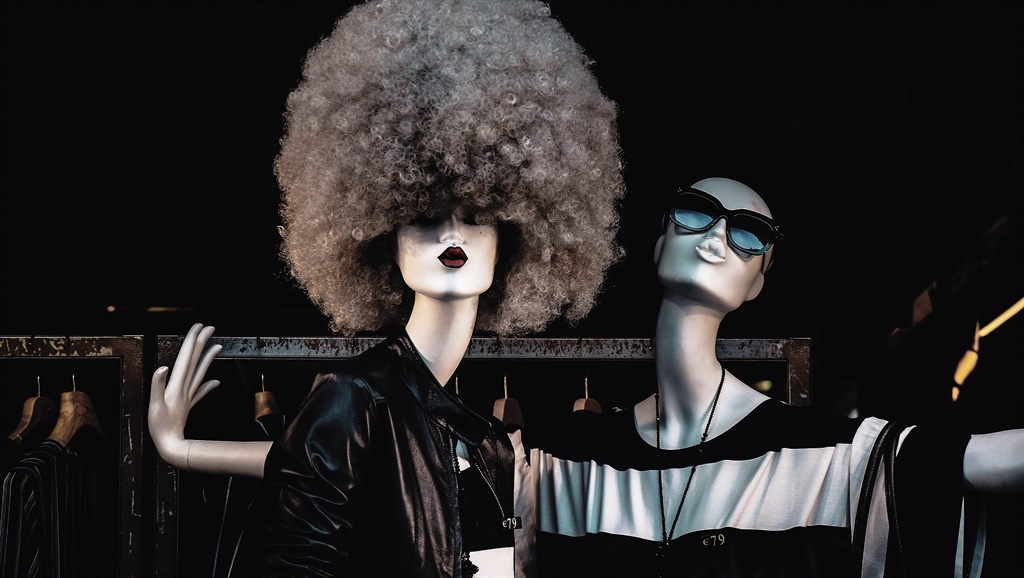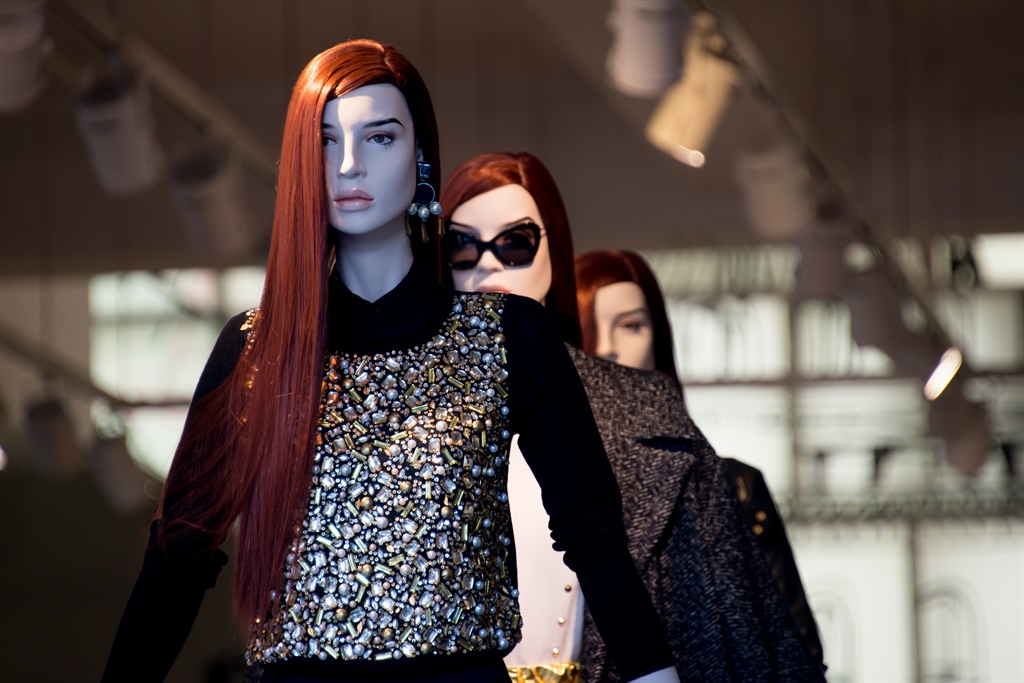
Since the onset of Covid-19, fashion has played a significant role in fattening the curve of infections. Initially, with the announcement that cloth masks — besides saving lives — would be the ticket that secures you entry to almost all spaces where you're likely to come into contact with other people.
The industry has its hands full with reconfiguring from covering bodies for beauty to doing it to preserve lives since the cloth mask assumed the role of a dividing line between infection and the preservation of livelihoods. Designers and brands have embraced the challenge.
W24's fashion and beauty content producer, Afika Jadezweni, wrote in a previous article that prominent fashion brands, including Prada, LVMH, Gucci, and Pyer Moss are emptying their CSI funds and reaching deep in their pockets for Covid-19 relief.
She accurately observed that "at times, the major players of this multi-billion-dollar industry get it wrong, but it would appear that in more recent events, they're seated on the right side of history's front row."
And In the front row, another unexpected proponent of the fashion industry has claimed a seat at the table of Covid-19 relief — the mannequin.
Mannequins are now used to fill seats in public spaces to encourage social distancing. Photo by Getty Images
Post Covid-19 the world may take such a different existance that words like those of author Jarod Kintz when he said, "I hate fake people. You know what I'm talking about. Mannequins," may take on an entirely different meaning. But it wouldn't be completely new for the statuesque figures to assume human roles.
FashionUnited retells the story of Cynthia, one of the most famous mannequins of the 30’s who seamlessly integrated into human life when she became coupled with doll maker, Lester Gaba. Lester created the lifelike mannequin and took her along to his various events.
“The pair became celebrities, with Cynthia proving to be quite the endorsement - Tiffany’s, for example, sent her jewelry, while LIFE Magazine ran a feature on the couple. Their relationship took a tragic turn, however, when Cynthia fell off a chair and broke into a thousand pieces,” FashionUnited shares.
From naked bodies on display in store windows to those representing unrealistic, even unhealthy, body images that snub the more curved female (and male) physique, mannequins have constantly been the subject of much politicisation.
Though not new to controversy, the cause of the mannequin is a noble one this time around — that can't be refuted.
READ MORE: 21 AFI designers unite in face mask relief program for South Africans in need
On the home front, a family from the UK created garden displays using papier mache mannequins to lighten up their own family's days and those of passersby during social distancing.
In sport, Taiwan launched its baseball season with mannequins and cardboard cutouts of fans wearing face masks after spectators were banned from attending games during the coronavirus pandemic.
One unfortunate incident even left a soccer team having to issue an apology after reportedly using sex dolls among mannequins to fill seats in a South Korean stadium.
Restaurants across the globe have also started to gradually 'invite' mannequins to their seats to encourage social distancing, and in some cases, showcase local fashion stores' and designers' fashion lines.
One such restaurant is Cozy Restaurant in Lithuania, whose owner was quoted by EuroNews as saying, "We decided to reach out to our neighbours, fashion boutique stores, and invited them to use our empty tables to showcase their newest collections. The news spread and well-known designers joined this project, which keeps gaining interest across the city."
In Virginia, U.S., three-Michelin star restaurant, Inn at Little Washington, is making news for being among those who have enlisted mannequins' services to help their patrons avoid feeling lonely while dining.
According to The Guardian, “the restaurant plans on having its staff treat the mannequins as if they were guests, engaging in conversation and occasionally filling their glasses."
Of course, there will be no show of appreciation for excellent service, let alone tips from the "silent" guests. Still, the interaction may help to make the unconventional setting feel more pleasant and reassuring for patrons.
On the other hand, businesses planning to use mannequins will have to consider the cost of such deployment as well as compensation for staff if they are required to serve and converse with the mannequins. In addition, the figures which are often made from fiberglass, PU (polyurethane), PP or ABS Plastic would need to be cleaned and positioned in such a way that they can't be easily damaged.
Mannequin Works is a local supplier of mannequins of diverse shapes and tones to some of the country’s largest retailers. Speaking to W24, owner of Mannequin Works, Juliet Prinsloo says the prices range from R950 to R6 500 per figure.
She sheds light on the mannequin industry, saying, "In relation to affordability, we have a mannequin graveyard for used and damaged figures where people can pick up mannequins or body parts at a minimal cost. This would probably appeal more to the creatives and those looking for a lower-cost solution."
READ MORE: Is it shallow to make a case for more 'fashionable' protective cloth masks?
Although the lifespan of a mannequin is around three years, Juliet says they can be kept for longer if taken care of and "old mannequins are often sent back to us to be refurbished and then returned to stores."
Many clients are also opting for plastic mannequins as their components can be recycled, which makes them more eco-friendly.
For small business owners and designers who are already dipping into reserve funds to survive through the lockdown and the effects of Covid-19, any additional expenses may not be possible.
To mitigate the cost, store owners may consider initiatives such as the Cozy Restaurant's. However, designers would have to be guaranteed that their clothing items and mannequins will not be damaged in the process.
READ MORE: Japanese lingerie firm sells face masks made from bras after first batch made as a joke sold out
There are also mental health concerns to consider. A research article titled, Standards of Beauty: The Impact of Mannequins in the Retail Context, highlights mannequins as the peddlers of perfection for their portrayal of women with "long slim legs, thin waists, and generous breasts."
A 2017 study on mannequin body size in high street fashion stores of two English cities also unsurprisingly found that the average female mannequin body size was representative of a very underweight woman, and would be considered medically unhealthy in humans.
The researchers suggest that store designers opt for the more slender figures due to the public perception that they are "more aesthetically pleasing" when fitted with clothing from the stores in question and displayed on storefronts.
Image supplied by Mannequin Works
Playing to and perpetuating stereotypes? A means to an end? But what about the consequences?
The 2017 study highlights that "the internalisation of ultra-thin ideals is likely to be detrimental to the psychological well-being of young women" and can lead to body dissatisfaction in women — a risk factor for the development of disordered eating and depressive symptoms.
In addition, researchers observed that "decreasing the beauty of the mannequin by changing its aesthetic appearance mitigates the threat to consumers with low appearance self-esteem. Specifically, when a mannequin is flawed or incomplete, consumers with low appearance self-esteem evaluate the product displayed by the mannequin more favorably."
In essence, being bombarded with these "perfect figures" may lead to aggravated or novel mental health and self-esteem problems.
READ MORE: Prada, LVMH, Gucci, and Pyer Moss among luxury fashion names contributing to Covid-19 relief
For the optimistic perceiver, sharing social spaces with static figures may be a cause for buoyancy and even excitement. However, it may seem strange, unnerving, and met with pessimism by the more conservative members of society. Regardless, we can't deny that the very presence of the mannequins may be a step in the right direction towards normalising social distancing.
However, if research is anything to go by, if the figures used are not representative of real human bodies — flabby arms, scars and all — we may not be solving a health problem, but rather replacing Covid-19 with another health concern — one of the mental kind.
What are your thoughts on the use of mannequins to encourage social distancing? Tell us here.
Sources: The Guardian, The Conversation, Journal of Eating Disorders, BBC, EuroNews, KUTV, Sky News, Mannequin Works, FashionUnited, Journal of Consumer Research
Follow us on social media: Facebook, Twitter, Instagram
Sign up to W24’s newsletters so you don't miss out on any of our stories and giveaway.




 Publications
Publications
 Partners
Partners
















